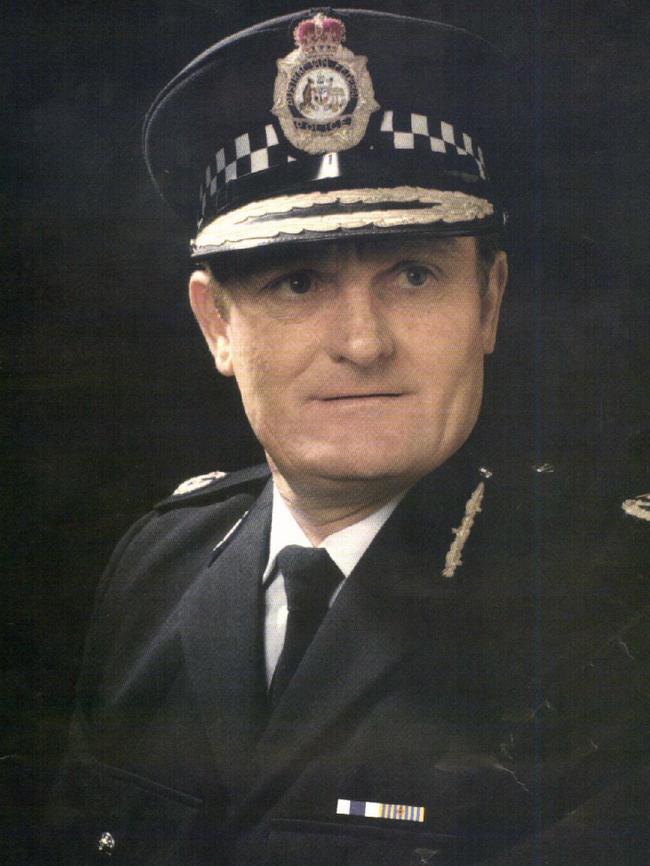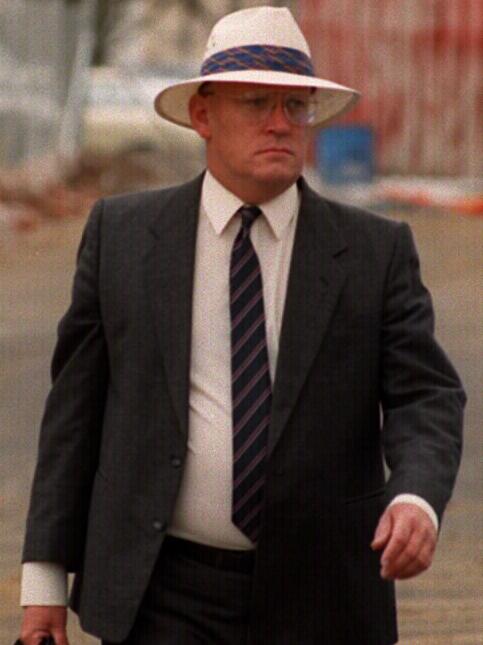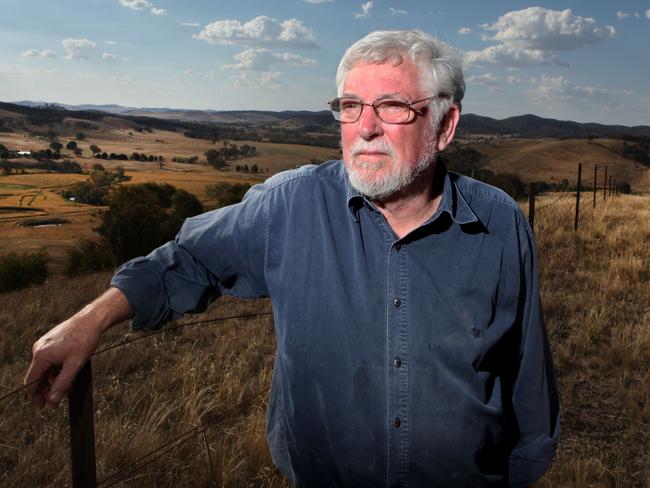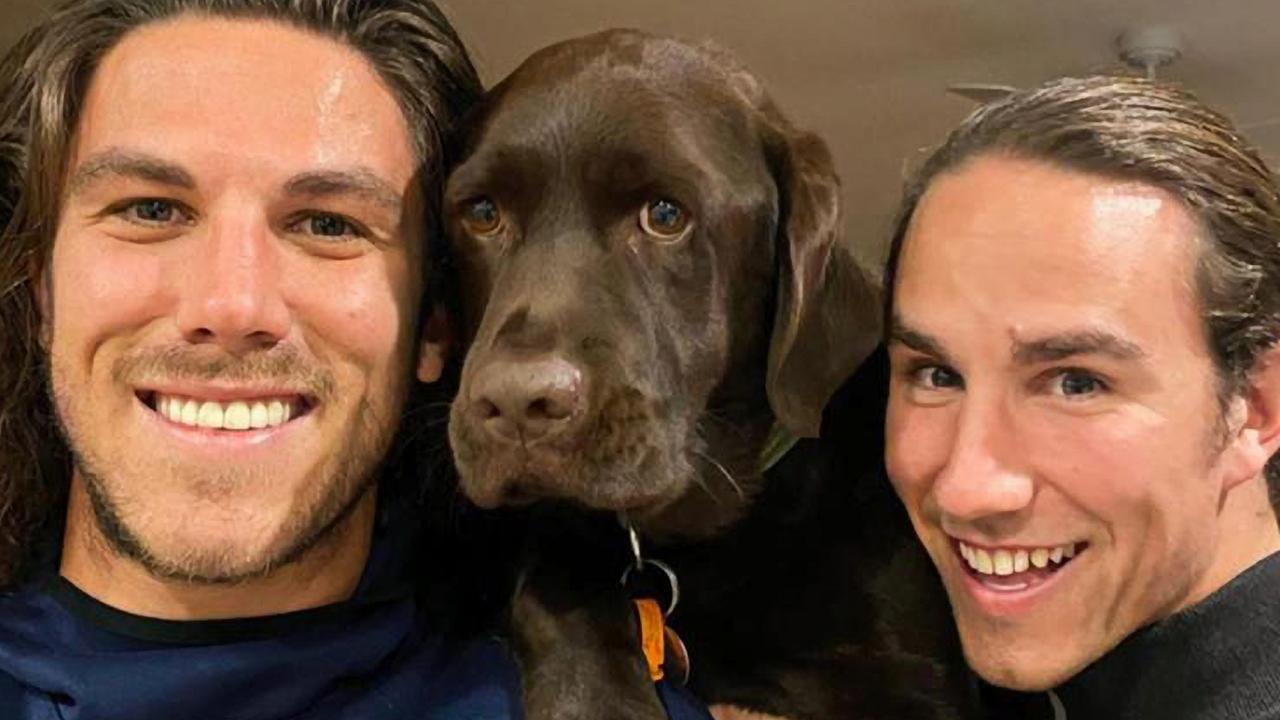David Eastman’s lawyers claim AFP ignored mafia links to Colin Winchester murder
The lawyers who represented David Eastman – the man wrongly convicted of top cop Colin Winchester’s murder have hit out at the AFP and their handling of claims it was a mafia hit.
Crime in Focus
Don't miss out on the headlines from Crime in Focus. Followed categories will be added to My News.
An internal report by the Italian anti-mafia Carabinieri police circulating in the public prosecutor’s office in Rome to use for local gangster prosecutions sought to describe the activities of the ’Ndrangheta beyond Europe’s shores.
It was detailed, expansive and, towards the end, included a curious addition about Australia that should have set alarm bell ringing at AFP headquarters in Canberra.
The 2014 report described how the mafia had infiltrated Australian organised crime at all levels and had been responsible for at least three high-profile murders in the country: Griffith anti-drugs campaigner Donald MacKay in 1977, National Crime Authority officer Geoffrey Bowen in 1994, and the 1989 slaying of AFP assistant commissioner Colin Winchester.
As far as the AFP was concerned at that time, the Winchester execution had nothing to do with the mafia but rather a disgruntled former Treasury official David Eastman who had already served 19 years jail for a crime he did not commit.


The basis of the Italian police claim, which was stated nonchalantly as fact, dated back to the time of Mr Winchester’s murder outside his Canberra home in January 1989.
Five months after the murder, Italian police told the AFP that according to wire taps two suspected assassins dubbed “The Shepherds” with known ties to both the Italian and Australian mafia had been dispatched to carry out the crime.
A cursory check by the commonwealth arm of the AFP, as opposed to the ACT branch, found the men did arrive, did have links to known organised crime heavyweights involved in the drug trade, and at least one could be placed in the Canberra district at the time.
But by then the ACT AFP investigators, acrimonious to their commonwealth counterparts, decided they had their suspect and other hypothesis were just that.
To Italian police and prosecutors, the conviction of a mentally troubled Eastman with no ties to organised crime was a stunning result, but was an issue for the Australian courts.
There had always been a stench about the prosecution of former public servant Eastman, who was sentenced to life in 1985 before an independent inquiry found a miscarriage of justice and recommended the sentenced be quashed and he should be pardoned.

A hint of how this prosecution proceeded peppered the 2014 inquiry by judge Brian Martin who found it “deeply flawed” at all turns, notably the questionable forensic evidence presented and critical material held back from Eastman’s defence team.
It also pointed to the AFP’s “blind spot” attitude to pursuing the apparent mafia clues described as a “reluctance” to thoroughly and impartially reinvestigate alternative hypothesis, the strength of which Justice Martin declared remained unknown.
That reluctance flowed from a “policy or stance” to not “disturb” the AFP’s earlier securing of the Eastman conviction.
An internal AFP memo from the time also points to the PR disaster and likely criticism levelled at key AFP members that could sue should any further action be taken on information related to the mafia and suspicions be publicly revealed.
Former Eastman lawyer Terry O’Donnell said the mafia lines were never truly pursued because on “day three” after Mr Winchester’s murder, investigating officers decided it had to be Eastman.
“They were not interested in the Italians and certainly by 1992 they completely discounted it … they had Eastman in their sights and they were after him,” Mr O’Donnell said.

He said the fact there was now no one charged or convicted of the murder of a top police officer – and so much relevant new and past evidence had not been fully examined – demanded a new probe should be launched.
“I would just be interested to see how far (the AFP) will now go,” he said, adding he could help police now if they needed.
Another lawyer at one stage involved in the Winchester case, Bernard Collaery, agreed the police could not afford to have a chief murdered with no one looking at who may have done it.
“Eastman was demonised and exploited in a very cynical fashion,” Mr Collaery said.
“He (Eastman) was already unfavourably known to police for his behaviour at a time when mental health issues tended to enter the justice system more than they do now in our more enlightened era.
“The second thing is there was no serious investigation of the Italian connection which was obvious, prominent and clearly a matter that had to be investigated fully and proved or disproved. The assistance sought from the Carabinieri was quite limited, and the story of the two ‘Shepherds’ was treated as a folkloric issue and belittled internally.”
The whole link to Mr Winchester and the mafia stemmed from an informant who approached the AFP with details about the Calabrian mafia asking him to grow cannabis crops in Bungendore in NSW, to which Mr Winchester and the NSW Bureau of Criminal Intelligence hatched a plan to authorise the crop in a bid to gather intelligence on the network of growers. Operation Seville, as it was dubbed, allowed the informant to tell the mafia that he was paying corrupt police to ensure the crops would not be seized.
The operation collapsed after a suspect with the cannabis haul was arrested in Victoria. He became an informant and revealed the Calabrians had ordered the killing of Donald MacKay as well as other details related to the Bungendore crops and Italian organised crime.
In a statement on Sunday night, the AFP declared there was no open investigation into the Winchester matter and “no recent” review.
“Our thoughts are always with the Winchester family,” a spokesperson said.
Despite the AFP’s own intelligence and reports on the ‘ndrangheta referencing the Italian Mafia and the Winchester case including reports from Italian counterparts, the spokesperson said there “is no evidence to suggest Italian organised crime was responsible for the death of one of our own”.
More Coverage
Originally published as David Eastman’s lawyers claim AFP ignored mafia links to Colin Winchester murder




